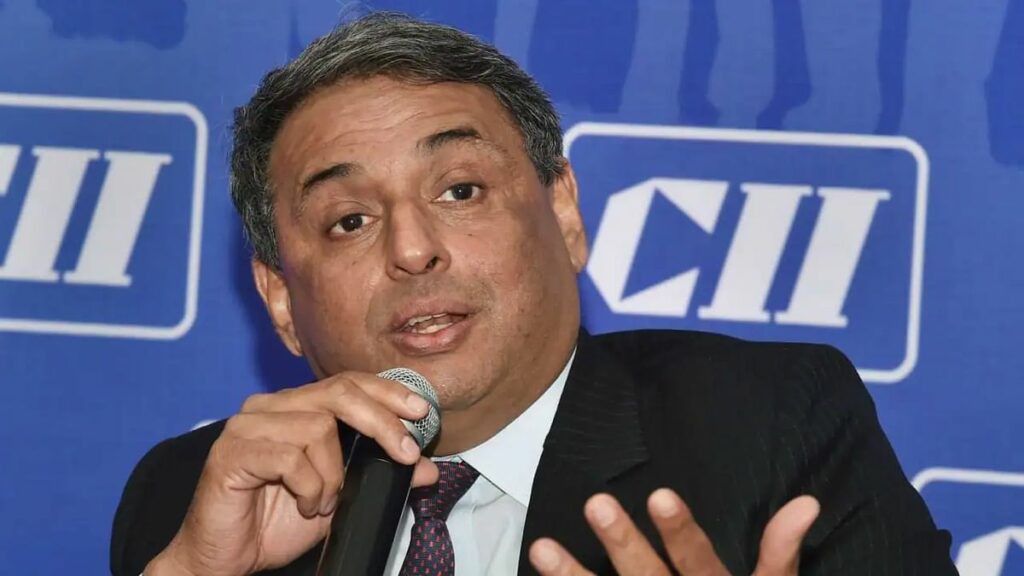Virendra Pandit
New Delhi: India’s top business and industry body Confederation of Indian Industry (CII) on Thursday requested the Centre to come forward with a fiscal stimulus to the tune of Rs 3 lakh crore along with direct cash transfers to restore domestic demand and the country’s economy.
For fiscal 2021-22, the CII pegged India’s GDP growth rate at 9.5 percent.
The CII also sought expansion in the Reserve Bank of India (RBI)’s balance sheet to meet the demand exigencies caused by the global pandemic of Covid-19, which has adversely affected the Indian economy.
Virtually addressing a press conference for the first time, the new CII President, T V Narendran, appealed to the government to support the industry through an increase in Emergency Credit Line Guarantee Scheme (ECLGS) to Rs 5 lakh crore and extend the scheme until March 31, 2022, besides including more distressed sectors, like retail.
Long pending structural tax reforms, like the inclusion of aviation turbine fuel (ATF) and other fuel products under GST, should also be considered, he said.
“With the recent uptick in mobility indicators, traffic congestion index, and daily railway passenger movement, we believe that 9.5 percent growth rate can be achieved this year,” said Narendran, who is Managing Director and CEO of Tata Steel Ltd.
Stating that growth needs to pick up to 9 percent by 2024-25 with public expenditure, reforms, and vaccination as key levers, he said the cumulative impact of the two waves of the pandemic on incomes and consumer sentiment, coupled with the increase in household medical expenses in the second wave, may affect consumer demand for some time.
As the economy reopens after relaxations in restrictions because of the waning second wave, a dual-pronged government strategy is necessary to boost consumption and support industry until demand is well-entrenched.
As businesses reopen, their credit needs should be met and the financial sector should be able to absorb pandemic-induced non-performing assets (NPAs). A corpus may be set up as a pandemic pool to cover the risk of losses from future pandemics, he said.
Suggesting measures for accelerating vaccination, Narendran urged the government to appoint an empowered Minister of Vaccination to speed up the inoculation drive, including in rural areas, accelerate procurement and distribution of vaccines to the states and Union Territories(UTs) based on scientific criteria, and monitor progress through a daily dashboard.
The CII has estimated that an average of about 71 lakh daily vaccinations are required until December 2021 to administer at least one dose to all adults. To achieve this target, vaccine availability must be doubled.
The government should also fast-track all necessary licensing requirements and pay in advance for purchases, besides providing capital subsidies to incentivize production, he said.
Besides, the Centre should urge the IP owners of vaccines to issue licenses for mass manufacturing with the transfer of technology.
Observing that a third wave is a possibility, Narendran urged that district administrations should partner with the private sector to set up Covid-19 Care Centres in rural areas as well. Free land, deemed clearances, and tax benefits could be extended to achieve this target.
The Centre should also acquire reserves of essential drugs, vaccines, and oxygen to meet infection spikes in the future, said the CII, while suggesting a multi-pronged National Oxygen Development Plan to create a robust oxygen ecosystem.
A large quantity of industrial oxygen had been diverted recently for medical usage to meet shortages. The oxygen unavailability had impacted the industry as well.
The CII is aiming to set up E-ICUs in rural areas across 12 states, whose pilot projects in Maharashtra and Haryana have been found successful. These units will have testing and diagnostic facilities and oxygen generation capacities.
The CII has also drafted a Code for Industry Staff Welfare to provide relief to families of employees who succumbed to Covid-19. The code suggests support by companies in five key areas, including support for welfare, income, higher education, term insurance, and support to contractual staff.

